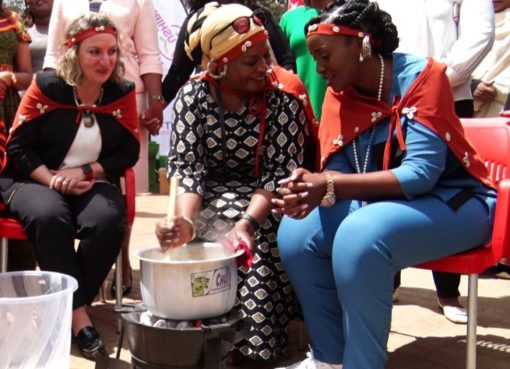Stakeholders in street rehabilitation are gathered in Mombasa to draw a policy that will be used in the operation of the Street Families Trust Fund (SFTF) and to come up with a harmonized manual for mitigation of street families.
The national technical steering committee toured Mombasa on Tuesday where they engaged stakeholders and street families in discussions to improve the draft policy before it is tabled in parliament.
Speaking during the forum the board of trustees led by Alex Masibo said under the leadership of the new Agriculture Chief Administrative Secretary (CAS), Linah Jebii Kilimo, they are out to streamline the operations of the Fund through a policy which has not been in place in the country.
Masibo observed that the delegation is on a countrywide tour to collect views from stakeholders engaged in the street families’ rehabilitation programmes including government institutions, civil society groups, faith-based organizations and street families among others.
The trustees said the exercise targeted both cities and rural areas so as to comparatively have a broader view of the scales of street families in these two areas.
The Street Families Board of Trustees which included, Ms Fatma Ahmed, Lucy Kamuri and Samuel Muraya from the council of governors said Mombasa has a special place for the policy input considering the former Kisauni Member of Parliament the late Karisa Maitha was the person behind the idea in 2003 when he was the Minister for Local Government.
The policy draft which began in 2016 is at zero draft stage since it had not brought together stakeholders thus the momentum gained in recent days after Machakos meetings with Kilifi, Taita and Tan River scheduled for the same.
According to the board of trustees, the trust fund could soon stop funding institutions previously funded after it emerged many of them have little or nothing on the ground to benefit the street families compared to the millions of funding.
The team proposed a multi-agency approach to the issues revolving around street families thus the engagement of the institutions dealing with the street menace from the two levels of government, street family institutions up to the families in the streets.
The task to rehabilitate street families however faces a challenge after it was discovered the beggars in the streets including children are cartels minting money from religious groups who are obliged to help as dictated by their religious doctrines.
These cartels have organized and hire children to beg in the streets with some parents getting paid a commission from what they collect on daily or weekly basis.
The policy will see stringent measures taken against able parents who hire out their children to beg in the streets where they are vulnerable to abuse.
Some street families engage in criminal activities thus the policy should differentiate which families to rehabilitate through psychosocial support, vocational trainings and which ones to arrest for criminal prosecution among other interventions.
The policy making process is scheduled to be concluded in May 2020 with a repeat validation exercise before being taken to parliament for further processing.
Participants however expressed skepticism, saying Kenya is the home of best policies that are left to gather dust in some shelves without implementation only to be picked by other countries and implemented.
By Joseph Kamolo





